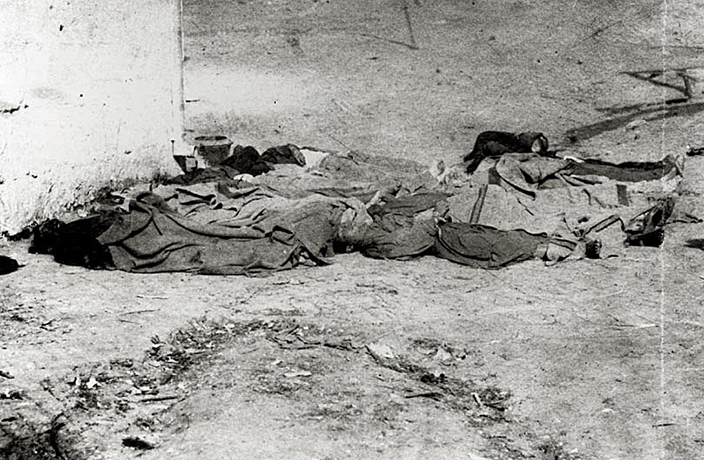Chinese New Year, Spring Festival, the largest human migration in the world – they are all different names for the same thing: essential winter family time in China. It’s the most important celebration of the year for Chinese people; the celebration with the most state-mandated vacation time, when feasting and family reunions are a must. Throughout the country, an understanding pervades the national psyche that everyone who can should return home. Though joyous, CNY can also be a time of extreme hassle, low business and uncertainty among Middle Kingdom nationals.
Buying a train ticket home is a prime example of this. Chinese New Year travel season normally begins two weeks before the official start and will last for 40 days. During this time, hundreds of millions of people all over China journey back home – mostly by trains and buses.
Supposedly to make ticket booking easier and more efficient this year, the China Railway Corporation (CRC) started to sell tickets on December 7 for the 40-day travel period. With 60 days’ leeway, the hope was that purchasing tickets over the phone or online would be less of a mad panic. But did it work?
"I fought for at least five days for each of my tickets"
Leslie Lv, a worker at an American foreign trading company in Shenzhen, was one of many who vigilantly searched the Internet for train tickets this year. “I fought for at least five days for each of my tickets. Every day I tried very hard to get the tickets, but I could not get them… Same situation happens to me every year,” she says, describing a scenario most Chinese have experienced.
Like many young people in Shenzhen, Lv moved to the city right after college. She grew up in Henan, where her parents still live. Lv has lived in Shenzhen for two years, and the prospect of not getting to return home during those five arduous days of ticket searching weighed on her. “[I thought,] I’ve been living far away from home, without seeing my family for a year… Finally, when my chance comes, I have no ticket. This is ridiculous,” she says.
In order to buy a ticket to get home before Chinese New Year’s Eve, she looked up the ticket release schedule and then checked CRC’s website 30 minutes before they released the tickets. Not wanting to miss any, she checked the website after the tickets were released as well, hoping to find some additional tickets. She looked for trains departing from Shenzhen North Station as well as Guangzhou South Station.
Besides the official CRC website, she used 360 Qiangpiaowang, a site that allows clients to buy tickets quickly. However, most of her efforts were foiled because the tickets were almost instantaneously fully booked once released.
After several failed efforts on the CRC site and Qiangpiaowang, she reached out to scalpers, but they didn’t have the tickets she needed either. Finally, she booked a ticket home through the CRC site on February 18 – Chinese New Year’s Eve. Like Christmas Eve to Westerners, the night before Chinese New Year is important, with people gathering for dinner and family time.
“Nobody actually celebrates New Year’s Day, but everyone celebrates New Year’s Eve. Failing to get home before the 18th means I have to travel miserably on the train that day, whereas everyone else is enjoying the holiday with their families,” Lv explains, her voice rising noticeably.
As for her return ticket to Shenzhen, she had no choice but to buy a standing berth.
While Lv boards a train for Henan, those staying in Shenzhen will experience a totally different place. As a city mostly made up of migrants, normally hectic Shenzhen becomes a ghost town during Chinese New Year. Like other big cities such as Shanghai or Guangzhou, traffic jams are nonexistent during the holiday. Pedestrians hailing taxis won’t wait long, as eager cabbies scoop up what little fares they can.
“I can earn around RMB300 on a good day, but during Chinese New Year, I can only earn half that"
A taxi driver surnamed Liu has lived in Shenzhen for four years and claims that half the people in the city will go back to their hometown. “There’s not even a queue for buses or the metro, let alone our taxis. Most of the locals have their own cars now, and when there’s not traffic, people prefer driving themselves instead of taking a taxi,” he remarks.
Though Chinese New Year is a happy time, business becomes scarily sparse for Liu during the festival. “I can earn around RMB300 on a good day, but during Chinese New Year, I can only earn half that,” he says.
He too would like to return home. “I’m thinking maybe I should go back to visit my family this year, but it’s too cold in Heilongjiang,” he notes, speaking of his native province. Ultimately, he would prefer for his family to travel to Shenzhen for the holiday. He’d like to use his taxi as a tour bus for them.
“I have a big family, traveling by train is the most economical way for us. But then I have to think about how to get them round-trip train tickets,” Li says. He doesn’t seem like the type of man who can afford to play games all day with the CRC site though.
"People will start to leave the city, especially those young people, and they are most of my clients"
Taxi services aren’t the only local enterprises facing this problem. A woman surnamed Chen and her husband own a small flower shop in Baishizhou. They too have to prepare for low business due to Chinese New Year. “Usually, Valentine’s Day is supposed to be a good day for our business,” Chen says. “Young guys will buy flowers for their girlfriends. We can easily earn RMB1,000 a day.” However, Chinese New Year’s close proximity to Valentine’s Day this year has thrown a wrench into their azaleas.
“People will start to leave the city, especially those young people, and they are most of my clients. I’m not sure how much we can earn this year, but I can see it will be less than it used to be.”
Chinese New Year can be rejuvenating and nourishing, yet simultaneously stressful and worrisome. Most people remain optimistic despite their frustrations, perhaps keeping the old Chinese saying in mind: “There are always more solutions than difficulties.”






















0 User Comments